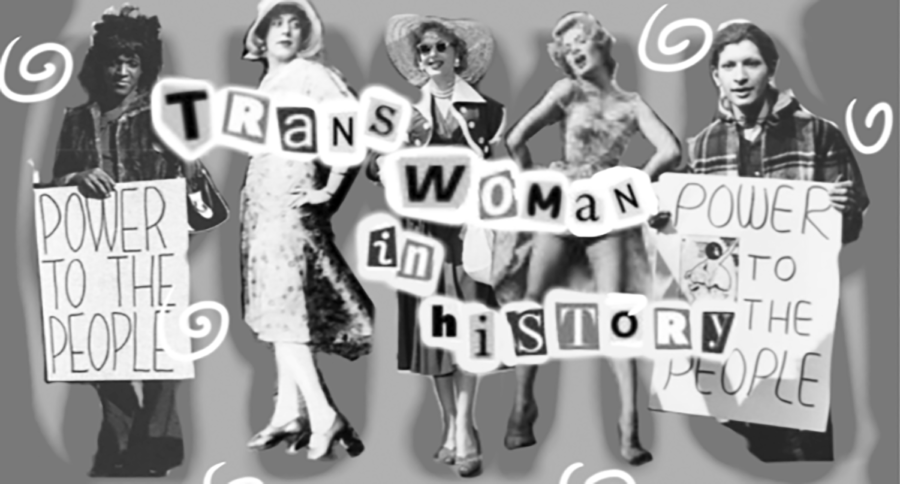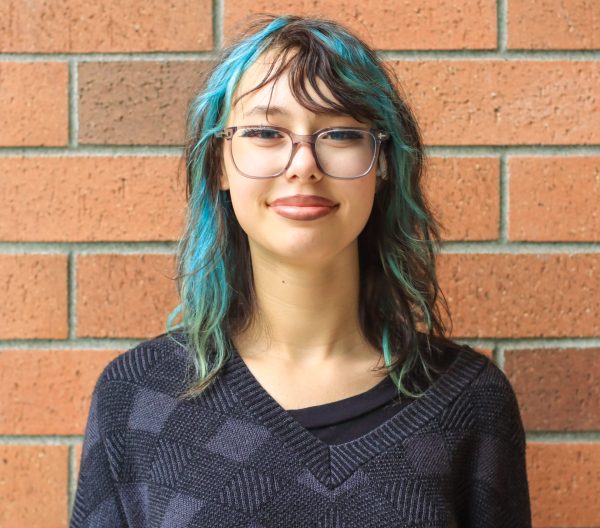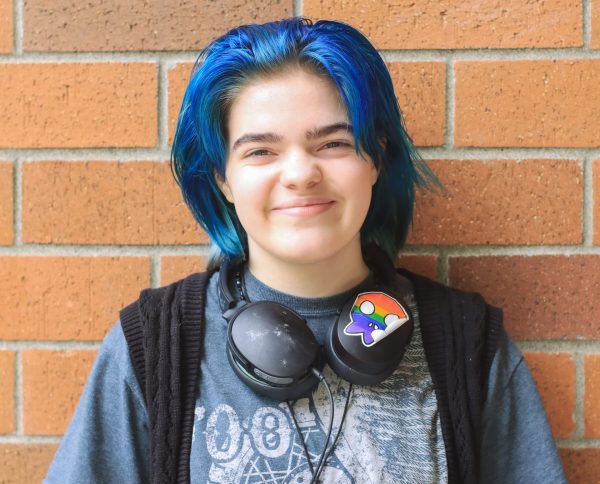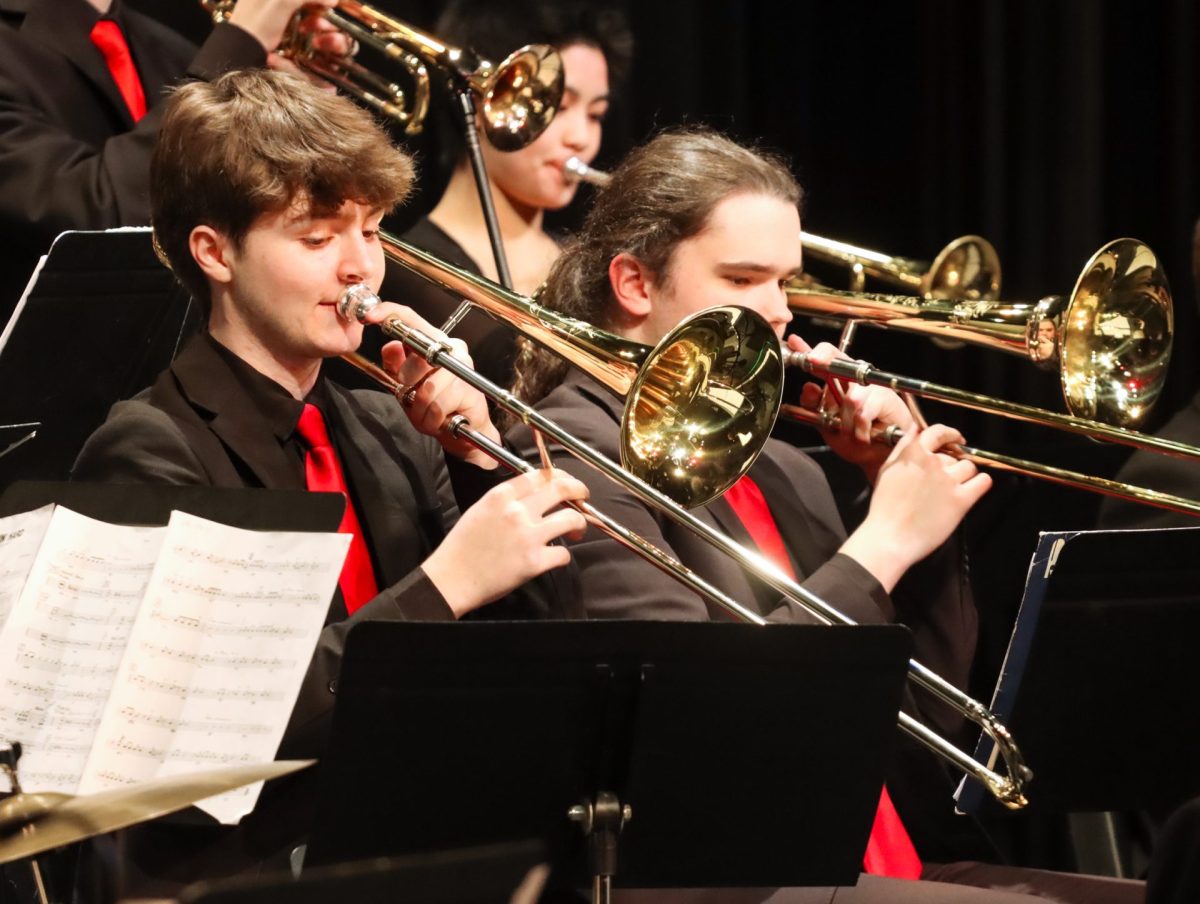Throughout the fight for equal rights for women as well as people in the LGBTQ+ community, trans women have yet to stay silent. One of the most persevering and strong groups in history, trans women, specifically Black trans women, have shined through despite being shunned by the world, and have managed to pave the way for women and queer folk like them to thrive.
“I am very grateful for trans women for helping out the LGBTQ+ community. They do so much for us, like they have protested so much, they are literally the backbone of our rights and that’s amazing honestly,” freshman Nicole Carty said. “I genuinely believe that people hating on trans people is B.S., because why do you care how someone else lives? They’re living their own life, live your own.”
Even when they are forced to be forgotten, they still persevere more than one could imagine. Trans women are a group to be remembered and praised for their bravery and empathy to fight for themselves and others.
Here are a few of their stories…
Marsha P. Johnson
1945-1992
Born on Aug. 24, 1945, Marsha P. Johnson would grow to become one of the most prominent figures for Black trans women in all of history, as well as a prominent figure for gay rights, rumored to be the one who started the Stonewall Riots 1969 by throwing a brick at a police officer. She was one of the biggest advocates in the 1960s and 1970s for LGBTQ+ youth who were shunned by their families, along with being an advocate for people suffering from HIV and AIDS, a very controversial topic at the time.
Johnson was a self-identified drag queen, going by the stage name Black Marsha, before finally settling on Marsha P. Johnson, the “P” standing for “Pay No Mind.” Johnson soon became very prominent in the queer community, commonly referred to as a “drag mother,” helping young queer individuals who became homeless after either coming out or being outed.
She was also a founding member of the Gay Liberation Front and cofounded Street Transvestite Action Revolutionaries (STAR). Johnson died July 6, 1992. She was found in the Hudson river and the police ruled it a suicide. Johnson’s legacy continues to live on with the imprint she left in the queer community.
Johnson once said, “They call me a legend in my own time, because there were so many queens gone that I’m one of the few queens left from the ’70s and the ’80s.”
Sylvia Rivera
1951-2002
Sylvia Rivera, born on July 2, 1951, was also an American gay liberation activist who identified as a drag queen, later a transgender woman. She was known to be close friends with Johnson and heavily participated in the Stonewall riots. She helped with demonstrations with the Gay Liberation Front, and co-founded the youth group shelter STAR.
Rivera attended many riots and protests to fight for gay and trans rights. On the day of her famous speech “Y’all better quiet down” in 1973 during the first Gay Liberation Day rally, Rivera was told she was not allowed to speak, despite being a big figure in the queer community. After this she jumped on stage and grabbed the mic, the crowd started booing, and then she delivered her famous line, “Y’all better quiet down.” She continued her speech stating, “I’ve been trying to get up here all day, for your gay brothers and your gay sisters in jail that write to me every motherf**king week and ask for your help, and you all don’t do a godd**n thing for them.” She continued her speech for another three minutes.
“I have been to jail. I have been raped. And beaten. Many times! By men, heterosexual men that do not belong in the homosexual shelter. But do you do anything for me? No. You tell me to go and hide my tail between my legs. I will not put up with this s**t. I have been beaten. I have had my nose broken. I have been thrown in jail. I have lost my job. I have lost my apartment for gay liberation and you all treat me this way? What the f**k’s wrong with you all? Think about that!”
During her speech, Rivera pointed out the struggles that queer folk of color face in the wake of this revolution. She expressed her immense disappointment toward the community for leaving the most underprivileged and discriminated group behind, along with pointing out the privilege white gay men have over queer people of color. After the speech, she left the activist spotlight for 20 years, before returning due to Johnson’s death.
Sylvia Rivera died Feb. 19, 2002 from liver cancer.
Christine Jorgensen
1926-1989
Born May 30, 1926, Christine Jorgensen was one of the first widely known trans women in America. She was a successful actress and singer. Jorgensen was drafted during WWII, after which she fled to Denmark where she had multiple gender-affirming surgeries.
After returning home, Jorgensen made the front page headlines speaking of her experience on discovering her true authentic self. She gave multiple speeches during the ‘70s-’80s, traveling the country sharing her journey.
“I find on college campuses it’s incredible, the acceptance is marvelous,” Jorgensen said in an interview with the daily talk show “Hour Magazine.” “They’re fascinated, they’re fascinated because we have come into an era of identification, human identification. Not only just sexual identity, but ‘Who am I?’ I think the world is far more complex now than it was when I was young, and so the younger generation, they wanna find out, ‘Where do I belong in this world?’
They’ve stated openly that they felt that I did my own thing during a period when people were not doing their own thing. They were conforming to patterns that society had said ‘you are and you must do’ and I did my own thing. And I’ve got to admit I did it for myself, I had no idea it was going to affect the rest of the world.”
Jorgensen influenced many other transgender individuals to come out and start expressing themselves, and influenced people to have gender-affirming surgery to feel like their true authentic selves. She died on May 3, 1989 of lung and bladder cancer.
Trans people as a whole have brought our community together in more ways than we can imagine, and deserve all the respect we can give them and more, with new state laws being passed restricting many trans kids from getting the help they need (see the article on page 6), along with the common stereotype of drag queens being ‘groomers,’ trans people need the help and support they deserve.
“My first and foremost thought is that everybody should live their happiest lives and be allowed to pursue happiness in whatever that means to them,” Terrace football and track coach Archie Malloy said. “My second thought is I’m in full support of people living their life, and doing so peacefully, and when people are undermined that means they’re underserved, and if we’re undeserving of a population of human people then we are falling short as humans.”
Many forget the fight that trans women, especially Black trans women, put up in order to for the rights of others, and the sacrifices they made in order to make sure everyone got the equal rights they deserve.
“Obviously they shouldn’t be undermined if they’re doing positive things,” sophomore Maria Gaviola said. “And I don’t think it should matter whether they’re trans or people of color, that shouldn’t affect how people view them. They’re just being themselves, it’s not really fair for them.”
Trans violence, again, mostly against Black trans women has spiked and has been prevalent since their existence has been known.










